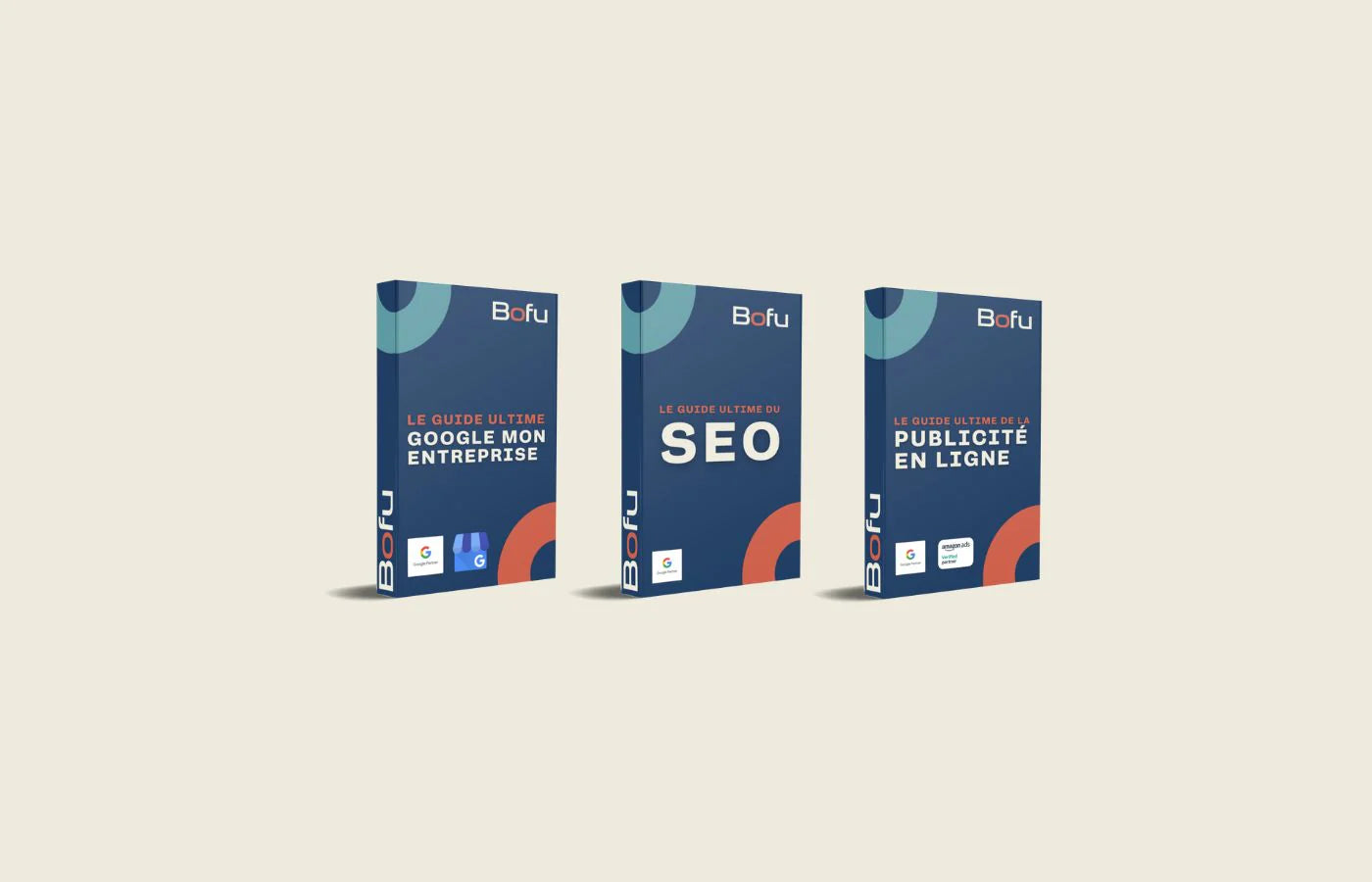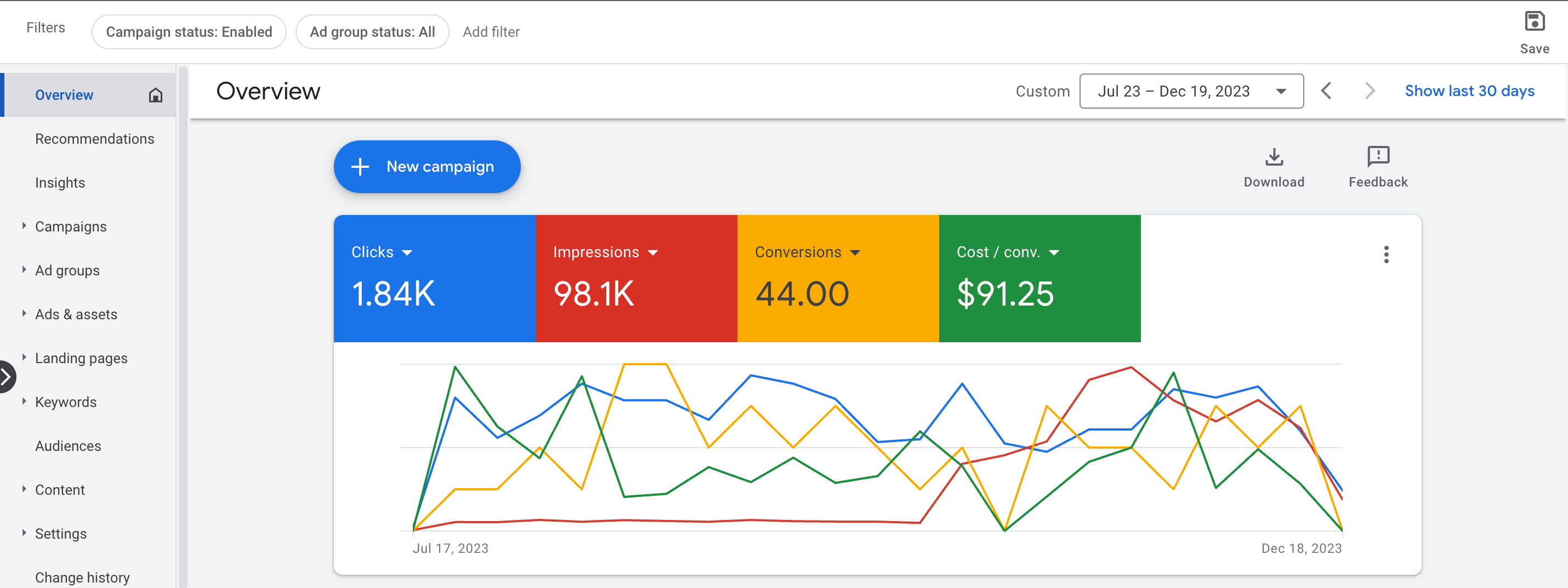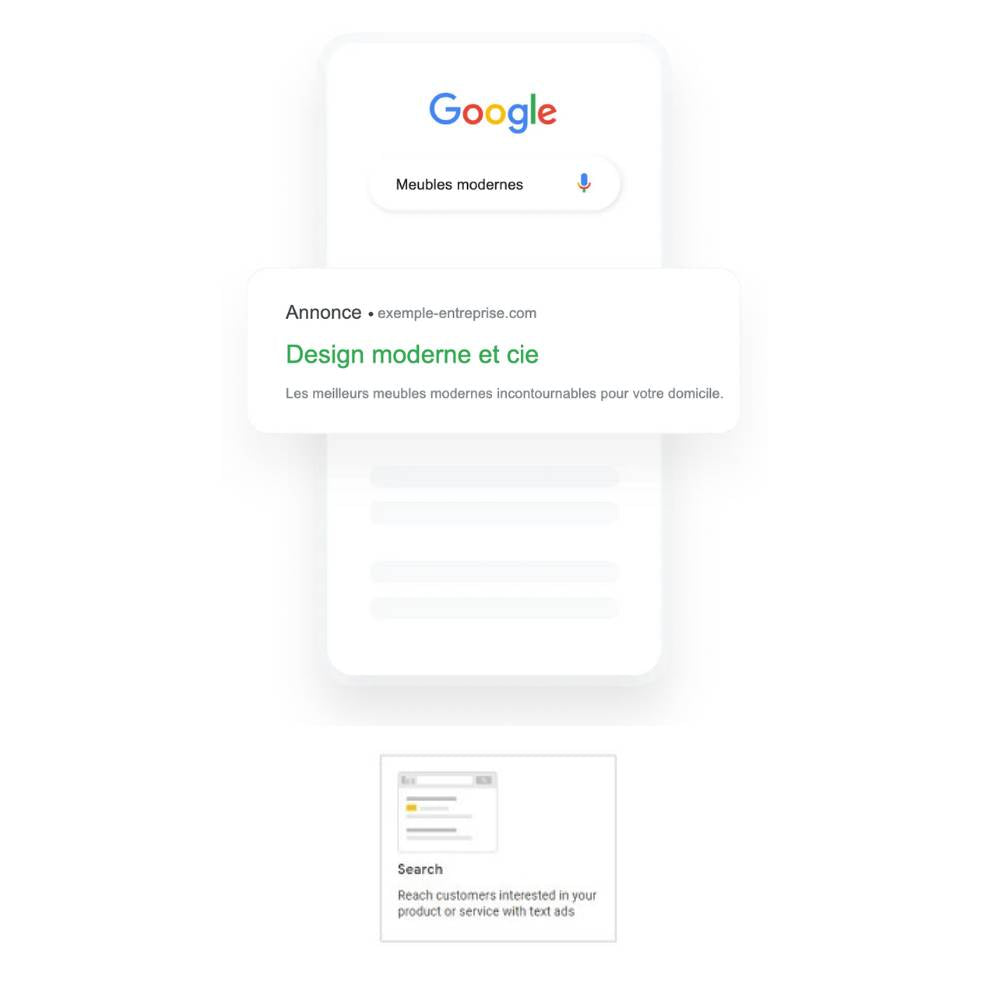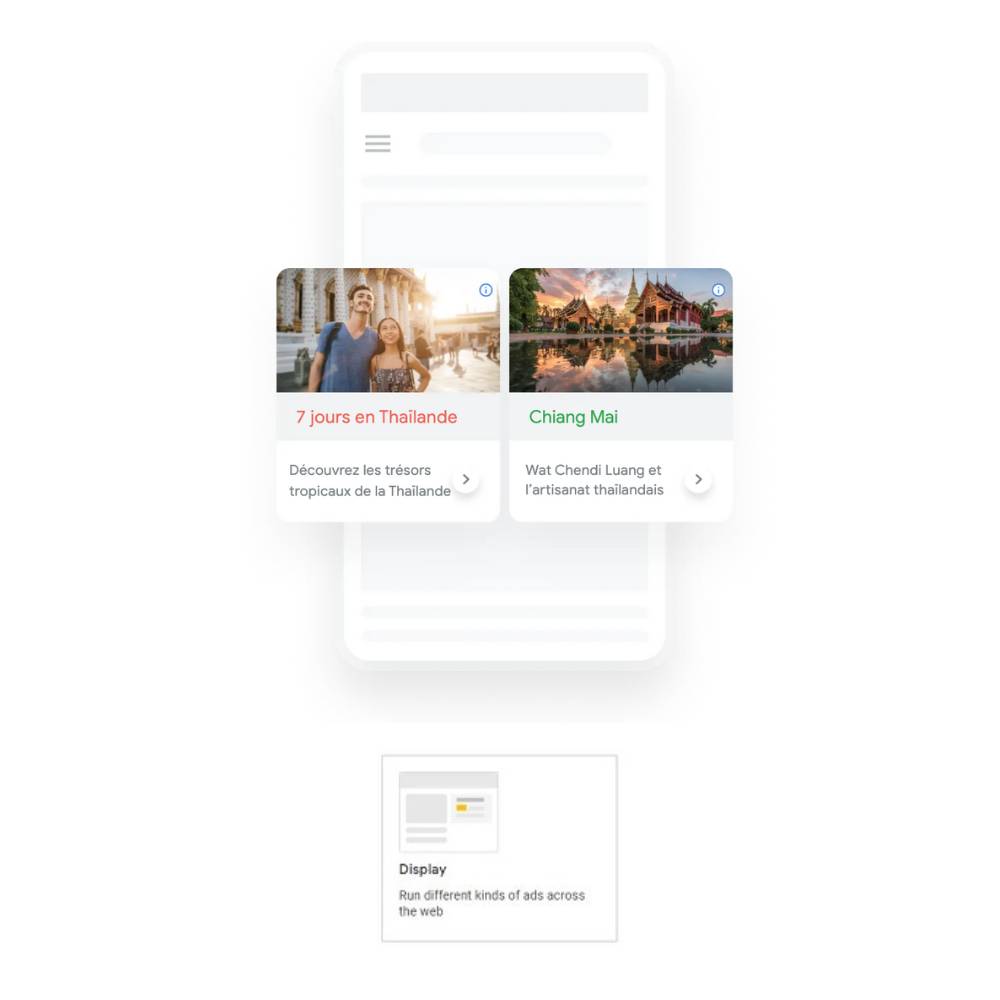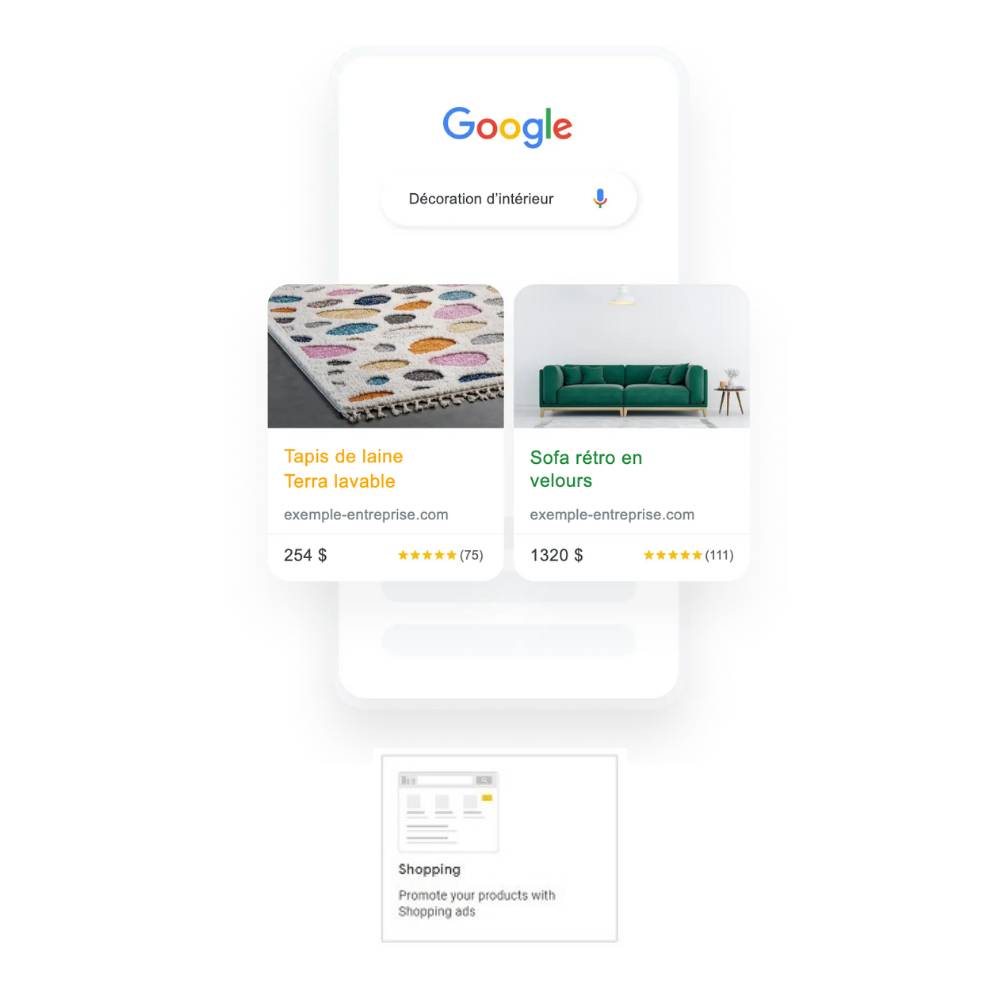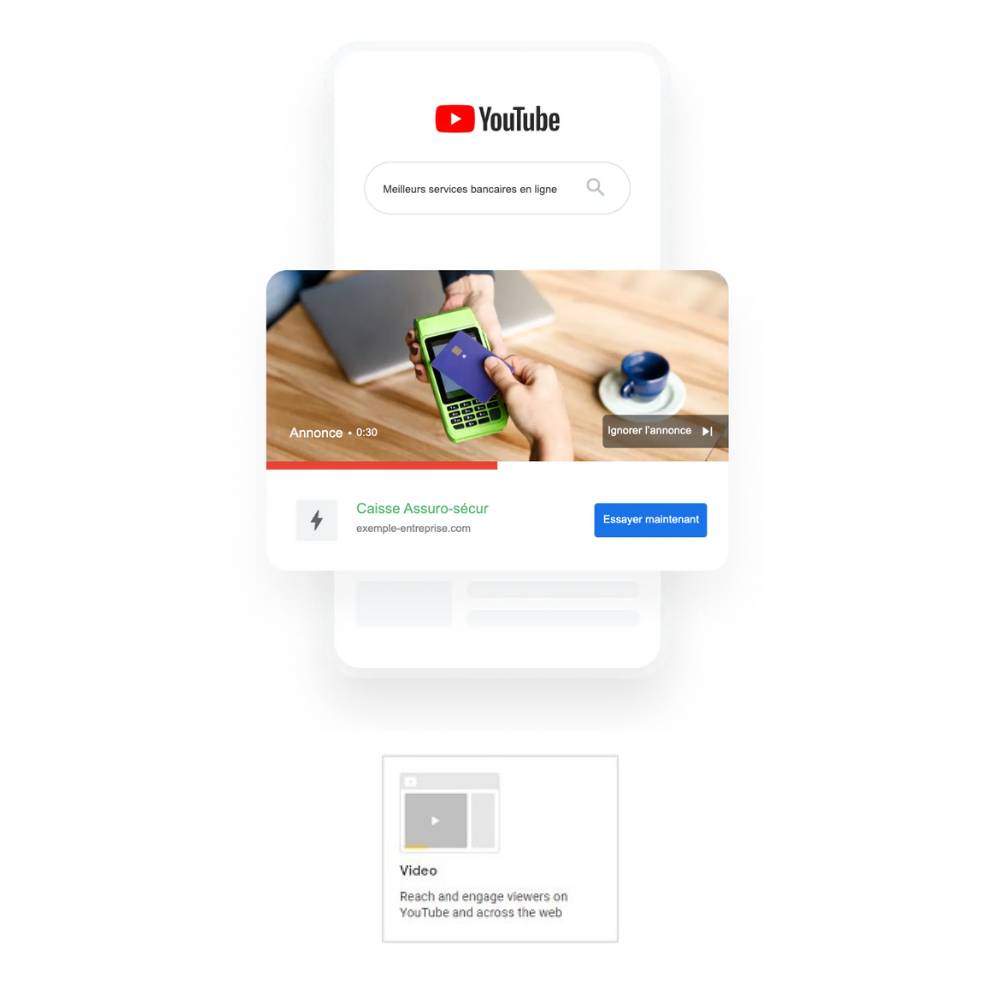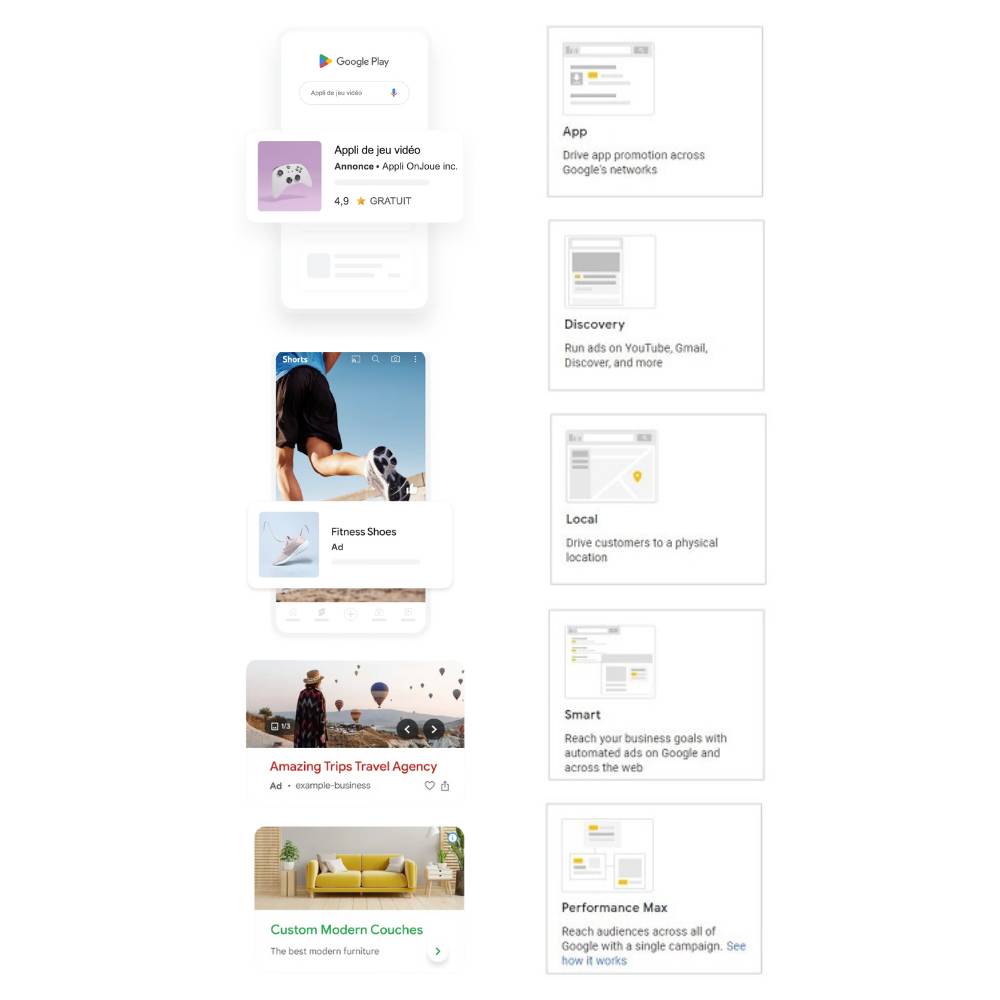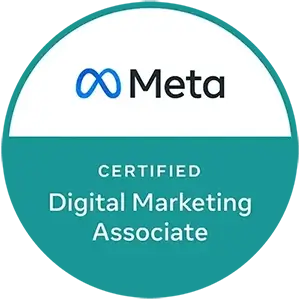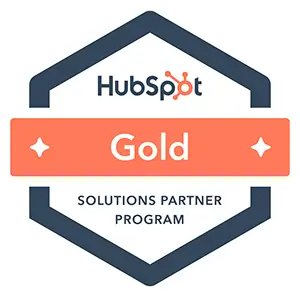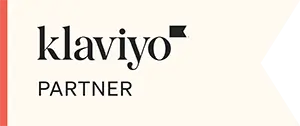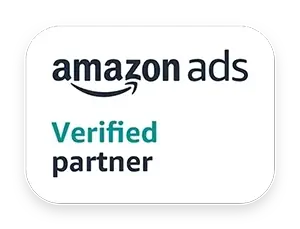S.E.M.
Our services
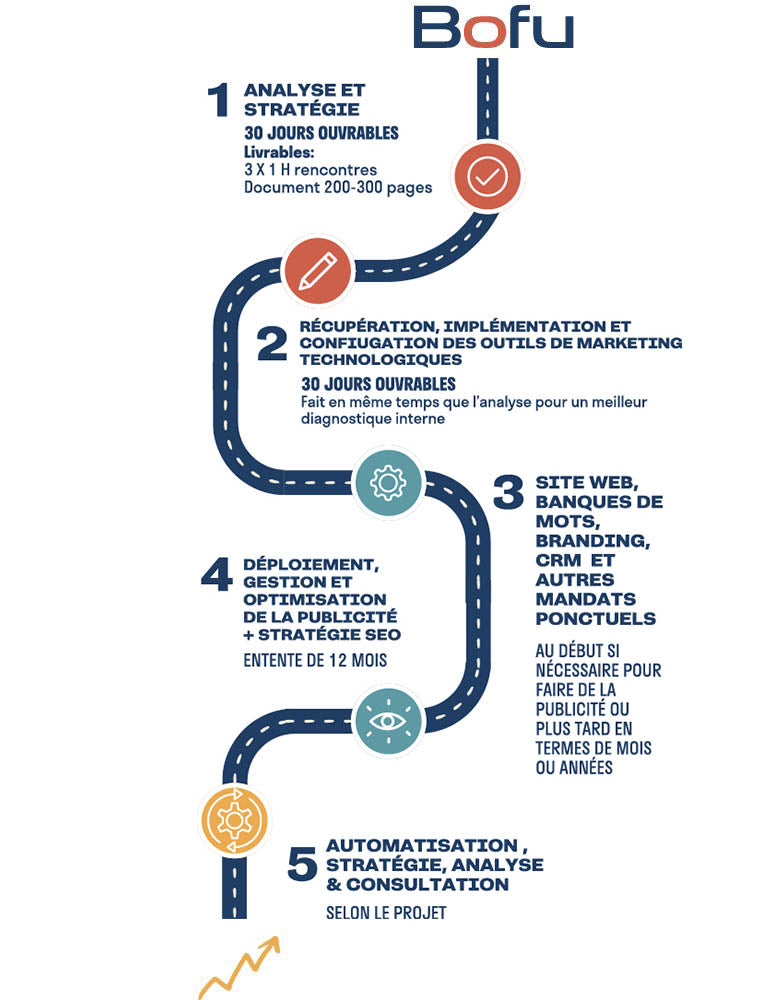
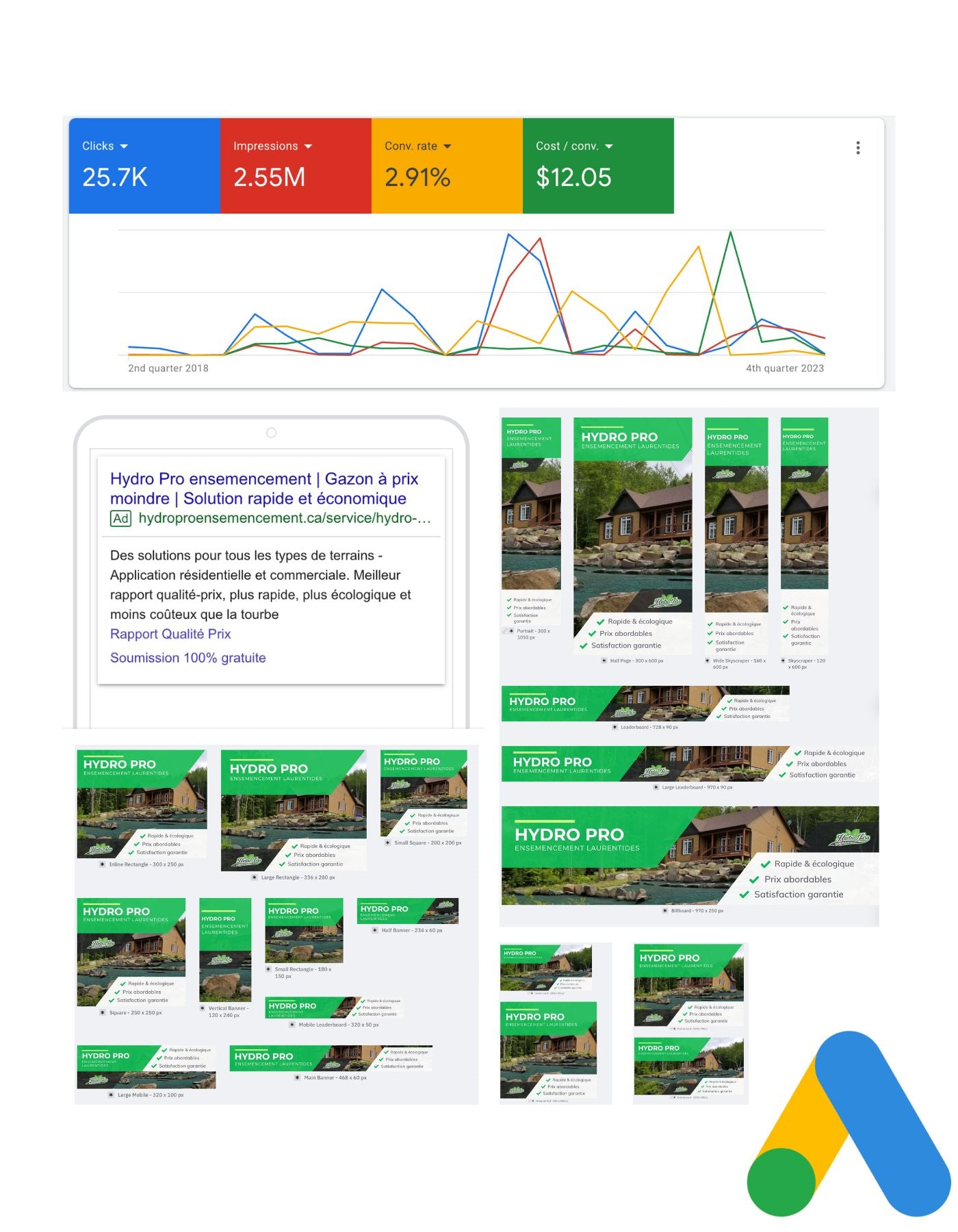
Google Ads
The bofu method
The Bofu Method in search advertising takes a strategic omnichannel approach, starting with brand search, thus targeting the intentions closest to your products or services. We prioritize optimal positioning in searches, ensuring constant visibility in front of our prospects. This visibility is maintained thanks to retargeting (remarketing) in search, or via display and video, depending on the volume of traffic.
In our strategy, Google Ads is used to precisely target users' search intent. However, this represents only one component of an integrated marketing strategy, also including other advertising platforms such as social networks. This multi-channel method ensures that our clients remain visible throughout their audience's online journey. Just like our approach in SEO and SEM, our objective is to maximize ROI by adapting our tactics to the different stages of the customer journey, taking into account the competitiveness of keywords and the specificity of each company.
Google ads
Align acquisition and amplification
We offer expert Google Ads management that stands out for its personalized and results-oriented approach. Our expertise in creating targeted campaigns ensures that your advertising budget is used strategically, maximizing return on investment. We understand the importance of alignment between your business objectives and your advertising campaigns, ensuring relevant advertising that resonates with your target audience.
Our team uses in-depth analytics and precise targeting strategies to reach the most relevant consumers, increasing the effectiveness and impact of each ad.
By choosing Bofu to manage your Google Ads, you benefit from expertise that transforms your advertisements into powerful business growth tools. Our proven methods and attention to detail make us the ideal partner to optimize your online presence and achieve your advertising performance goals.
Google owns more than 90% of the global search engine market, with the exception of China, where the majority share is held by Baidu (67%) and South Korea by Naver (60%).

Omnichannel strategy
Google Ads experts
We deeply analyze the added value of each client to create tailor-made advertising campaigns that fully exploit the potential of various Google ad formats - whether search, display, video, shopping, apps, services premises or even MAX performance.
This approach makes it possible to reach the target audience at different points in their online journey, ensuring a constant and consistent brand presence.
By adjusting advertising objectives to the particularities of each client, we maximize the effectiveness of campaigns, thus leading to increased performance and optimal return on investment.
Our omnichannel approach is not just a strategy, it's a philosophy that guides how we connect brands with their audiences in meaningful and impactful ways.
Flat-rate management
Google advertising as a strategic element of growth
At Bofu, our Google Ads approach is designed to accelerate the understanding of what converts best, providing a strategic advantage in optimizing your SEO initiatives. Using insights from ad campaigns, we quickly identify which elements are performing best, allowing us to more effectively adjust organic strategies for maximum impact.
This synergy between Google Ads and SEO shortens the time frame to maximize ROI, ensuring that your organic campaigns benefit from the learnings from paid campaigns.
search engine advertising
SEM solutions

SEO, SEM & SMM
Analysis & strategy

Conversions
Google tools (GTM, GA4, etc.)

Ad groups and quality
Campaign audit

Products
Google Merchant Center

Services
Google My Business

Display
HTML5 & AMP animated banners

Google Looker Studio
Analytics & dashboards

internal team
Training for managers
Google Ads Frequently Asked Questions
Here are all the most frequently asked questions that our customers and prospects ask us
Introduction
Google Ads is an online advertising solution offered by Google to businesses to promote their products and services on Google Search, YouTube and other websites. Previously called Google AdWords and Google AdWords Express, Google Ads allows advertisers to select specific goals for their ads, such as driving more phone calls or visits to their website. Advertisers can also customize their budgets and targeting, and stop or restart their ads at any time.
The Google Ads auction system allows advertisers to bid for display of their ads based on target keywords and placements. The highest bid for a given keyword and specific placement will win the ad display for that search or placement.
PPC (Pay-Per-Click) marketing is a form of online advertising where advertisers pay each time a user clicks on their ad. Ads are displayed on search results, social networks, websites, etc. PPC campaigns are often managed through advertising platforms such as Google Ads, Facebook Ads, LinkedIn Ads, etc.
The benefits of using Google Ads for online advertising include the ability to reach a targeted audience, control your advertising costs, track your campaign performance in real time, and customize your ads for different types of ads. devices and advertising channels.
Ad Rank is a score that determines your ad's position on search engine results pages (SERPs). It is calculated based on different factors such as your bid amount, quality of your ad and landing page, expected click-through rate, etc.
To create a successful Google Ads campaign, it's important to start by defining your advertising goals and your target audience. Then choose the right keywords for your ads, create relevant and engaging ads, and make sure your landing page is relevant to your ad. Finally, monitor your campaign's performance and make any necessary adjustments to improve results.
optimization
It is recommended to create at least three quality ads for each ad group, with a precise structure to optimize the relevance of the ads and integrate as many keywords as possible in the titles of the ads. It is also important to use RSA ads (responsive search ads) and to select the option "Optimize rotation: prefer the best performing ads".
To track and analyze the performance of your Google Ads campaigns, use Google Ads built-in tracking tools to monitor clicks, impressions, conversion rate, and ROI. Also use third-party analytics tools for a more complete overview of your advertising performance.
To effectively target your audience on Google Ads, use demographic and geographic data to define your target audience. Also use targeted keywords to reach people who are actively searching for your products or services, and use advanced targeting options, such as remarketing and interest-based targeting, to reach more specific audiences.
A negative keyword is a search term that you exclude from your ad campaign. This helps ensure that your ad won't appear when users search for that term. Negative keywords are often used to avoid costly clicks on search terms that aren't relevant to your business.
Types of campaigns
- Search Network Campaigns: These ads are usually in text format and appear on Google search results pages when someone searches for a product or service similar to yours.
- Display Network campaigns: These ads are usually image-based and can appear on websites or apps that your customers access.
- Video campaigns: These video ads are typically 6 or 15 seconds long and appear just before or while the user is watching a video on YouTube.
- Shopping Campaigns: These ads allow online merchants to promote their products directly on Google, displaying images, titles and prices of their products on Google search results pages.
- Max Performance: This campaign displays your ad across multiple Google advertising channels, such as the Search Network, Display Network, YouTube, and Discover, to reach the greatest number of potential customers.
- App campaigns: These ads promote your app on the Google Play Store or Google Search Network.
When it comes to payment models, Google Ads offers several options, including:
- Cost per click (CPC) or pay per click (PPC): You only pay if someone clicks on your ad.
- Cost per impression: Payment is based on the number of times your ad was shown, regardless of whether the user clicked on it or not.
- Cost per engagement: You pay each time a user completes a predefined action, such as watching a video ad.
What are the benefits of Google Ads Smart Campaigns for businesses?
Google Ads Smart Campaigns use technology to automatically monitor and improve your ads over time, which can help businesses achieve optimal results in the first month. Benefits of these campaigns include automatic bid optimization, personalized ads, multi-channel delivery, and real-time performance analysis. However, the exact timeframe for achieving optimal results depends on factors such as ad copy and local competition.
Price
Advertising costs on Google Ads vary depending on many factors, including the keywords you choose, your maximum bid, the quality of your ad, and the competition for those keywords. There is no fixed cost for Google Ads advertisements. You can set your own daily budget and bids, based on your advertising goals.
There is no minimum budget for Google Ads advertisements. You can set your own daily budget based on your advertising goals. However, it's important to keep in mind that the more you're willing to spend, the more likely you are to achieve your advertising goals.
Billing on Google Ads is based on a pay-per-click (PPC) system. You only pay when someone clicks on your ad. You can set a maximum daily budget for your ads and the amount you're willing to pay for each click on your ad. Google charges your account each time your daily budget is reached or at the end of each month, whichever comes first.
Other than ad click costs, there are no additional costs associated with Google Ads. However, it's important to keep in mind that to get good results, you might need to spend some money on creating quality ads and optimizing your ad campaign. You may also consider working with a digital marketing professional to help you maximize the results of your advertising campaign.
The best budget strategy for your Google Ads campaigns will depend on your business goals and business model. That said, here are some budget strategy options you can consider:
- Daily budget: You set a maximum amount you're willing to spend on your ad campaigns each day. Google Ads automatically distributes your daily budget evenly across the day.
- Target bid strategy: You set the maximum cost-per-click (CPC) you're willing to pay for each click on your ad. Google Ads then adjusts your bids based on that goal and the competition for the keywords you're targeting.
- Target CPA strategy: You set the maximum cost per acquisition (CPA) you're willing to pay for each conversion (e.g. sale, signup, or enquiry). Google Ads then adjusts your bids to maximize the number of conversions you get while meeting your CPA goal.
- Target return on ad spend (ROAS) strategy: You define the return on ad spend (ROAS) you want to achieve (for example, for every $1 spent, you want to generate $2 in revenue). Google Ads then adjusts your bids to maximize the ROI of your campaigns.
It is important to note that the choice of budget strategy will depend on your objectives and the characteristics of your business, as well as the competition for the keywords you are targeting. It's also important to regularly monitor and adjust your campaigns to optimize your budget and get the best possible results.
Google Ads uses an auction system to determine the cost of each click on an ad and to determine whether the ad appears in search results. Bids can vary based on many factors, such as how much your competitors are willing to pay for similar clicks, your ad's performance history, the level of competition for particular keywords, and more.
This means that while you can set a daily and monthly budget for your campaign, there's no guarantee that you won't spend more than that budget. There are two main situations where Google Ads can exceed your budget:
- Spending above daily budget: Google Ads can spend more than your daily budget, but will never spend more than 2 times the daily budget multiplied by the number of days in the month. For example, if you have a daily budget of $50, Google Ads can spend up to $100 in a day, but will never spend more than $1,500 (30 days x 2 x $50) in total for the month.
This happens because Google Ads adjusts daily spend based on fluctuations in keyword demand and bid, so some days may be more expensive than others, but the costs may be offset on subsequent days.
- Spending above monthly budget: Google Ads may be spending more than your monthly budget if you have higher-than-expected cost days and reach your full monthly budget earlier than expected. In this case, Google Ads may continue to serve your ads and charge you additional fees until the end of the month.
To avoid going over your budget, it's important to regularly monitor your campaign's performance and set bids based on your available budget. You can also set cost-per-click (CPC) limits or bid strategies to help you keep costs under control.
Google Ads Agency
- Expertise: Google Ads agencies have qualified experts who have extensive experience with Google Ads advertising campaigns. They can help you build an effective strategy based on your business goals and budget, as well as improve your ad relevance, keyword quality, and website conversion rate.
- Save time and effort: Running a Google Ads ad campaign can be time-consuming and effort-intensive. By using an agency, you can focus on your core business and let the professionals take care of managing your advertising campaigns.
- Maximizing advertising budget: Google Ads agencies can help you maximize the effectiveness of your advertising budget by using optimization techniques to get a better return on investment (ROI). They can also track the results of your advertising campaigns in real time and adjust strategies accordingly to maximize results.
- Access to advanced tools and technologies: Google Ads agencies have access to advanced tools and technologies to improve the management and optimization of advertising campaigns, such as performance monitoring tools, data analysis software and remarketing technologies.
In summary, using a Google Ads agency can help you maximize the results of your advertising campaigns, save time and effort, and use advanced tools and technologies to optimize your advertising budget.
Choosing a Google Ads agency can be a difficult task, as there are many agencies offering similar services. Here are some tips to help you choose the right Google Ads agency for your needs:
- Check their experience and certifications: Make sure the agency has a proven track record of managing Google Ads advertising campaigns and has relevant certifications such as Google Ads Partner certifications. Agencies that have certifications prove that they have undergone extensive training and have the skills necessary to effectively manage Google Ads advertising campaigns.
- Ask for references and testimonials: Ask the agency to provide you with references from previous clients and testimonials to get an idea of their experience and success in managing ad campaigns.
- Evaluate their work process: ask the agency to explain their work process for managing ad campaigns. Make sure they have a clear and consistent way to manage ad campaigns and use advanced tools to track and optimize performance.
- Understand their expertise and specialization: Each agency may have a particular expertise or specialization. Make sure the agency you choose has the expertise and specialization needed to manage your ad campaigns, based on your goals and industry.
- Assess their communication and transparency: Make sure the agency has clear and transparent communication throughout the ad campaign management process. They should be able to clearly explain their strategy and results to you, as well as provide regular performance reports.
- Assess their availability and flexibility: make sure the agency is available to answer your questions and resolve any issues that may arise. Also, make sure they are flexible and able to adapt to your needs and constraints.
By following these tips, you can find a Google Ads agency that suits your needs and can help you get better results from your Google Ads advertising campaigns.
Using a Google Ads Partner agency can be advantageous for several reasons:
- Deep Expertise: Google Ads Partner agencies have been trained and accredited by Google, which means they have deep expertise in online advertising best practices and the latest Google algorithm updates.
- Access to advanced features: Google Ads Partner agencies have access to advanced features of the Google Ads advertising platform, such as remarketing, retargeting, location targeting and ad personalization features.
- Performance tracking: Google Ads Partner agencies have access to advanced performance tracking tools that allow them to monitor the performance of your ad campaigns in real time and optimize bids and strategies to maximize results.
- Save time and effort: Google Ads Partner agencies can take over the management of your ad campaigns, allowing you to focus on your core business and save time and effort.
- Access to premium resources and support: Google Ads Partner agencies have access to premium training resources, technical assistance, and support from Google, allowing them to resolve issues quickly. problems and ensure the success of your advertising campaigns.
In summary, using a Google Ads Partner agency can provide you with increased expertise, access to advanced features, improved performance tracking, savings in time and effort, and access to resources and superior support to ensure the success of your advertising campaigns.
Yes, you can manage a Google Ads campaign yourself, but it will depend on your skill level and knowledge of online advertising and the particular Google Ads platform.
Google Ads is a powerful advertising platform that offers a wide variety of targeting and setting options. Although it can be relatively easy to use, the success of your campaign will depend on how you set it up and manage it.
If you have experience with online advertising and a good understanding of Google Ads fundamentals, then you might want to consider doing it yourself. However, if you are new to the field or unsure of your skills, it may be best to hire a qualified professional to help you set up and manage your campaign.
Either way, it's important to thoroughly research online advertising strategies and best practices, and understand Google Ads metrics before launching a campaign to maximize your return on investment.
